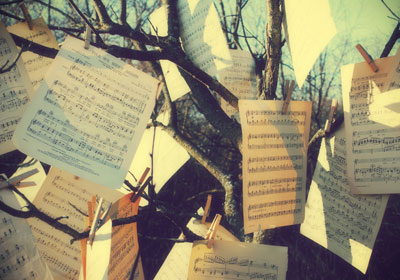All Nonfiction
- Bullying
- Books
- Academic
- Author Interviews
- Celebrity interviews
- College Articles
- College Essays
- Educator of the Year
- Heroes
- Interviews
- Memoir
- Personal Experience
- Sports
- Travel & Culture
All Opinions
- Bullying
- Current Events / Politics
- Discrimination
- Drugs / Alcohol / Smoking
- Entertainment / Celebrities
- Environment
- Love / Relationships
- Movies / Music / TV
- Pop Culture / Trends
- School / College
- Social Issues / Civics
- Spirituality / Religion
- Sports / Hobbies
All Hot Topics
- Bullying
- Community Service
- Environment
- Health
- Letters to the Editor
- Pride & Prejudice
- What Matters
- Back
Summer Guide
- Program Links
- Program Reviews
- Back
College Guide
- College Links
- College Reviews
- College Essays
- College Articles
- Back
THH: Great Tune, Trashy Message
“Tried to domesticate you, but you’re an animal…Good girl! I know you want it! I know you want it...”
“I got to stay high…Spend my days locked in a haze…Pick up daddies at the playground, how I spend my day time…”
“All I really need to understand is when you talk dirty to me…Talk dirty to me. Talk dirty to me...”
“You swore you’ve never hit ’em, never do nothing to hurt ’em, now you’re in each other’s face, spewing venom, and these words, when you spit ’em, you push, pull each other’s hair, scratch, claw, bit ’em…But you promised her, next time you’ll show restraint. You don’t get another chance…”
Why is it so uncomfortable to hear these famous lyrics isolated? All four songs of the above excerpts smashed iTunes’ Top 100, according to the official websites of Pop Vortex and iTunes, 2010-15.
And what else do they have in common? They’re part of a new wave of pop music intent on making social issues look good.
A music lover and violinist myself, I almost always have a melody stuck in my head, and know exactly what it’s like to fall in love with a tune. Music itself is an unquestionable part of pop culture. However, it’s all too often assimilated our daily lives with hidden meanings within the lyrics—pop, rap, and R&B are turning increasingly more explicit. And as Kevin Liljequist says in his online 2002 essay: “My concern with this music is that it glorifies violence, racism, mayhem, murder, and condones the abuse of women.”
The dirty—and often trashy—messages behind bestselling music are influencing the way youths perceive and treat life. We need to take our earbuds out to start realizing what exactly the beat is pumping into our heads.
Ever since this revelation, I’ve been unable to see “Blurred Lines” by Robin Thicke on Pandora without aggressively thumbing it down. But worst of all was probably a moment I had with friends on a normal afternoon; we were waiting for our gym teacher to reassume command when the topic of music arose. It was immediately agreed “Stay High” by Tove Lo was a fantastic song, each girl nodding in time.
Still a few of us prodded and poked at each other. And all we could answer with was “…I know what it’s about and stuff, but it’s just really catchy…”
I still wonder if I was the only one who walked away in guilt.
By pressing play on our phones, car radios, we are welcoming these social issues into our lives. And although awareness is easily a positive, the next time we hear about an Eminem-esque domestic abuse case, it’s less of a surprise. And these stories are happening—in fact, you could even argue these songwriters are just telling the truth of what they see in the streets.
Wait, how is that wrong?
Telling one’s personal story, one often attached to sensitive mental or physical trauma, is completely separate from today’s promotion of casual drugs...objectification...alcoholism...domestic violence.
Unfortunately, these portrayals in music are becoming a rapid reality. Kevin Liljequist says in his 2002 essay that “…Over the last thirty years, violent juvenile crime has jumped by more than five hundred percent…Teen suicide has tripled. Unwed teen pregnancy has skyrocketed. Casual drug use among teens has jumped nearly fifty percent over the last four years alone… Now more than one-thousand scientific studies and reviews conclude significant exposure to violent music and lyrical content increases the risk of aggressive behavior in certain children and adolescents.”
We’re driven to this misconception that the world is like that, and it’s just how it is. But we need to realize the world is susceptible to change—OUR change. We’re listening to the music, we’re choosing the music.
Still, we lose sight of what it’s doing to us.
So the next time you open Pandora or Spotify, take a minute and step back. What rhymes are being drilled into my head? What messages am I mindlessly digesting? And if they’re not good, not healthy messages, go neutral: just stay away from the song.
And how is this taking action again? We're the ones, in the audience, who make these songs famous by listening.
All you have to do is…don’t.
Music means a lot to people, and for good reason: thusly, we should look for the celebration of real emotion in music. Happiness; sadness; falling in love. Not these induced ‘highs’ gone as fast as they came.
Plato famously quotes, “Music gives a soul to the universe, wings to the mind, flight to the imagination, and life to everything.”
And now, we can continue enjoying it: with confidence.

Similar Articles
JOIN THE DISCUSSION
This article has 1 comment.
What does "THH" stand for? Good question! It's THE HOLY HITCHHIKE... No, I’m not even religious. The name is Ala Nova, and you have entered the domain of my discussion, thought, and paraphernalia. Enjoy, and let loose your commentary and suggestions below. A new column every Friday!